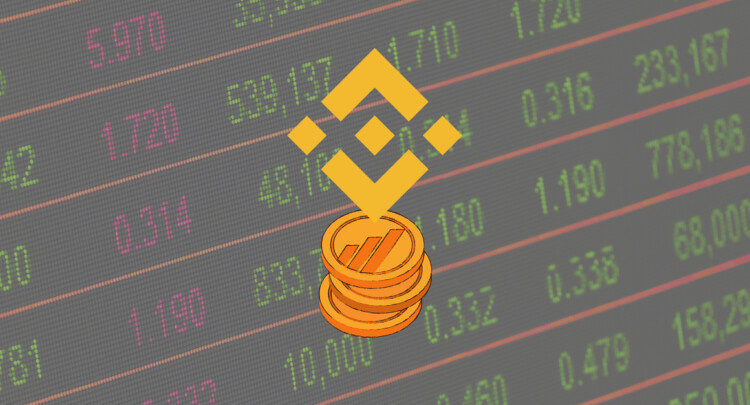CryptocurrencyInnovationTechnology Law / Cyber Law
Comments | Banning of Cryptocurrency & Regulation of Official Digital Currency Bill, 2019

BACKGROUND
As governments and corporations around foreign jurisdictions align their financial services to the Block chain, India does not recognize Crypotcurrencies as legal tender and in fact, the RBI has barred all the entities regulated by it from providing any services to any business or individual operating in Cryptocurrencies. Preceding this, many enterprising individuals took advantage of the unregulated sphere concerning trade in Crypotcurrencies as an unexplored avenue for investments. However, to curb this, the Indian Government has taken successive measures in order to prohibit activities relating to Crypocurrencies for stated purposes of investor protection and financial risk prevention. One of these measures include the recent promulgation of the Banning of Cryptocurrency & Regulation of Official Digital Currency Bill, 2019.
OVERVIEW OF THE BILL
While the foreign governments around the world seem to be inclined towards the regulation of essential services pertaining to the Block-chain, the Indian Government’s move to outlaw Cryptocurrency is reflective of its regressive stance.
The Draft Bill proposes a 10 year prison ban on anyone who “mines, generates, holds, sells, transfers, disposes, issues or deals in cryptocurrencies”. This Bill will ultimately damage India’s reputation as technology hub, hurting its stand in the Ease of Doing Business which would drive foreign investors away. This Bill seems to be in complete disregard of the fact that there are over a million Indians that are directly engaged in Cryptocurrency trading and related activities, besides the 19,627 Block-Chain Developers who will be rendered redundant if the Bill sees the light of the day.
The enactment of the Bill would lead to massive job losses as the USD 10 trillion crypto-industry would directly take a hit. Moreover, the Bill does not provide a safe exit passage to the individuals who bought or dealt in Cryptocurrencies. Another glaring lacuna in the Bill is that it does not mention anything about cross-border transfers through banking channels.
The government should have adopted a more balanced view keeping in mind the trends of digital economy and should have passed regulations governing Cryptocurrency as opposed to completely outlawing them.
SPECIFIC COMMENTS ON THE BILL
PART-I — PRELIMINARY AND DEFINITIONS
Normatively, the definition of “Cryptocurrency” appears to be targeting digital currencies not backed by any central bank, however the definition is too wide in its scope. It is problematic as it includes virtual currencies (“VC”) of all kinds, even those not born out of cryptographic means. Virtual Currency can be either open or closed in terms of its reach. For example, VCs such as Farmville’s gold are closed while Bitcoin is open. The wide definition bans closed VCs which do not pose any threat to the extant financial system in India by and large. Additionally, there is high probability that the observable characteristics of the cryptocurrency might change in the future, which could render the current definition useless.
PART II- GENERAL PROHIBITION
Section 3(1) of the Bill prohibits mining as well as holding of Cryptocurrencies which implies that citizens who would have set-up mining rigs would be penalized for being the front runners in adoption of a technology that has provided the highest return among-st the multifarious assets in recent years.
Section 3(2) excludes the applicability of this Bill to individuals using technology or processes underlying Cryptocurrency for the purposes of experiment or research. Thereby, the Bill while banning normal activities related to crypto currency still makes room for Crypto-related Research.
PART III- REGULATION OF DIGITAL RUPEE AND FOREIGN DIGITAL CURRENCY
The proposal of the Indian government’s inter-ministerial committee [IMC] to come up with an official digital currency is implemented in Section 4(1) of the Bill which shall be regulated by the Reserve Bank of India. This is reflective of the principles of ‘Charterlism’or the state theory of money according to which only States can issue money. It stems from the view that medium of Debit/Credit depends fundamentally on the trust in the sovereign or the power of the sovereign to impose its will on its subjects.
Further, Section 5 of the Bill gives RBI the authority to declare any official foreign digital currency to be recognized as foreign currency to the specified extent by way of a notification.
Section 6 of the Bill places a bar on the usage of Cryptocurrency as legal tender and currency. The sub-clauses of Section 6(1) lay down the manner in which Cryptocurrency cannot be used. The categories listed implicitly reflect the adoption of metallism or commodity theory of money by the Indian Legislature in terms of categorizing virtual currencies. This theory goes all the way back to Aristotle and holds that money is a kind of commodity that fulfills three functions: (i) a medium of exchange, (ii) a unit of account, and (iii) a store of value. By virtue of the wording of Section 6(1), the legislature can be said to be treating Cryptocurrency as commodity in so far as prohibiting its usage as legal tender.
Section 7 prescribes the additional activities for which the usage of Cyrptocurrency cannot be permitted and notably includes its prohibition with respect to related services to consumers or investors that includes registering, trading, settling, clearing or other services. Further, issuance of Cryptocurrency related financial products has been banned which would destabilize the existing infrastructure that processes and facilitates trade in cryptocurrencies.
Section 8 prescribes the nature of activities that would constitute an offence and lays down the quantum of punishment on account of engagement in prohibited activities. One of the stated objectives of the legislature is to nullify or limit any scope for money laundering via Cryptocurrency, however, the 10-year prison sentence for dealing in Cryptocurrencies is higher than the prescribed maximum punishment of seven years for money laundering.
Interestingly, Section 8(3) classifies any individual who directly or indirectly promotes, issues any advertisement, solicits, abets or induces any participation in any activity involving the use of Cryptocurrency as an offendor. This will have a catastrophic bearing on the thousands of You tubers and Influencers who earn a living teaching people about digital currency and crypto trading.
PART IV — POWERS OF INVESTIGATING AUTHORITY
Section 11 of this Bill gives power to the investigating authority to investigate any offence under this Bill while the Central Government is delegated with the task of notifying the appropriate levels of police officer for investigation of the appropriate offences.
The Bill refrains from laying down prescriptions with respect to the composition, scope and limits of the powers of investigating authority and therefore this is something that would ideally be covered under its prescribed regulations. However, the absence of prescriptions inadvertently would add fuel to the speculations with regards to the capability of the investigating authority to handle such category of offences.
PART V — PENALTIES AND PROCEEDINGS
Section 14 of the Bill lists the factors for determination of sentencing and fine. This is in line with the dicta of Supreme Court in Soman v. State of Kerala wherein the Court lamented upon the absence of legislative guidelines required to assist the trial court in meting out just punishment.
Section 16 of the Bill also gives power to the Central Government to grant immunity on full and true disclosure made by the offender. Had the Bill specified the composition of the Investigating Authority, it would have made more sense to grant this powers of immunity to the Investigating Authority itself. This is because the conduct of an alleged offender in an actionable proceeding concerning the disclosure may be considered as a mitigating factor and the investigating authority would be in a better suited to take this judgment call.
PART VI — MISCELLANEOUS
Section 25 gives power to the Central Government to exempt certain categories of prohibited activity in terms of Section 3 of Bill and the added layer of parliamentary oversight ensures that the exercise of powers by Central Government is not completely unfettered.
Despite the inclusion of Section 26 of the Bill as a transition provision tht states that within a period of 90 days of the Bill’s commencement, the concerned person who possesses cryptocurrency must declare and dispose them, it still leaves scope for concern amongst existing investors and traders regarding their exit positions post the ban because the manner of declaration and disposal is to be further prescribed by the Central Government through enactment of subsequent rules.
This article has been authored by Aayush and was first published on Per Pro Schema.




